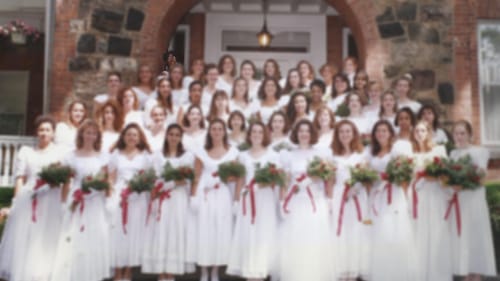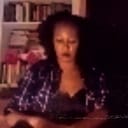Stay in the Loop
BSR publishes on a weekly schedule, with an email newsletter every Wednesday and Thursday morning. There’s no paywall, and subscribing is always free.
“The Good Black”
Racism is a lifetime of tiny cuts. They won’t stop unless we all speak up.

Racism is like tiny cuts, and I’ve accumulated many over the years. I’ve always been the “Good Black.” The Black white people felt comfortable around. The one they called a racial “exception.” The one people repeated inappropriate racial jokes to or asked “is that your hair?” Yeah. That’s me. I grew up in a middle-class town, attended prep school, graduated from Penn, took grad classes at Villanova, and did an M.A. at Cornell.
Racial cuts
Over the years, despite sharing common interests in sci fi, Ren faires, and improv with white friends, I initially avoided making overtly racial statements and overlooked passive-aggressive comments. In high school, a classmate claimed I stole her book and searched my locker. After college, my high school best friend said, “They only accepted you to grad school because you’re Black, bitch.” In graduate school, a boyfriend told me, “You’re jealous of me because I’m European.”
But in the past few years, as the incidents increased among my assumedly liberal colleagues, I stopped holding my tongue. An improv acquaintance berated me for 15 minutes in public, then slammed a door in my face when I tried to talk to her. After I told another “friend” about my hesitance in crowds on the 4th of July, she said she’d “never lived in unsafe neighborhoods” so she “wouldn’t know.” When I unfolded my feelings about her covert implications, she pushed back, claimed no one ever said that to her, and stopped speaking to me. These two separate instances include two self-professed liberal women, who are fearless supporters of LGBTQ and Black Lives Matter ideologies. But when I addressed them individually to point out what made me feel uncomfortable, they lashed back and shut down. Yes. Every racial cut hurts. And yes, anything can cut you, including friends.
Calling it out
This past year has been the biggest cut of all, one during which I've continuously dealt with white men overriding my decisions, telling me I didn’t need to join leadership, asking me why I had more responsibility than they did, or unabashedly asking if I really had the background in my resume during casual conversations and direct emails. When George Floyd’s murder occurred, I stopped couching my comments in apologies and started unabashedly posting. I called out “friends” who called the protestors “angry” or compared them to thugs. Both women unfriended me. Why? Because they can live in a world unjudged by their racial appearance. They can frame themselves as “liberal,” even as they compare Black Lives Matter and George Floyd protestors to criminals.
The protests activated every single overwhelming experience in my life. When the police killed George Floyd, I spent the week weeping while a “friend” called me a “keyboard warrior.” Despite my ivy-league and prep-school background, to even my closest friends, I’m still considered nothing but a Black stereotype. Last year, after I fainted in church, the minister asked if I had food or money, claiming he knew I’d lost my job. Note: I’d attended this church for six years. I asked if he would have said that to a white parishioner. No answer. If I’ve experienced so many continuous tiny cuts over 40 years in my allegedly protected space, it’s no wonder my brothers and sisters all simultaneously exploded in frustration.

Moving forward
The Philly protests helped to catalyze the removal of the Rizzo statue that represented so much racial tension. I’m hopeful that the protests will galvanize a reallocation of city funds to support community programs.
But on the personal level, there’s still more to do. What I’ve done in the past isn’t enough. I can’t be the “Good Black” anymore. I can’t suppress my feelings, fearing how white friends might react. I can’t put your comfort before my own. I can’t avoid commenting on social media in case you label me “angry.” I can’t ignore tiny cuts as they’re sliced into my flesh. It maintains the status quo and nothing changes. I reactivated my NAACP membership. I started supporting the Nile Swim Club, established in Yeadon in the 1950s when segregation was at its height. I’m looking at Gamma Phi Delta, a POC sorority which helps people in the community.
Don’t stop
To allies, I say thank you. Thank you for protesting. Thank you for checking on us. Thank you for providing the shield when we finally needed it. But don’t stop. Don’t let your mouth become a razor that accidentally slices another friend. Don’t tell BIPOC friends they’re mistaken, they’re over-sensitive, or that they should ignore it. Don’t tell your BIPOC friends about your racist family or the latest “Black” item you discovered. Don’t force them to fake smiles at your racial outrage or swallow their trauma. Don’t indicate how tired you are of the ongoing struggle. Don’t ask for a rest from the political. Your friends can’t do that. Just keep supporting us. Don’t force us to be the “Good Black” when we’re at the height of our sorrow.
To my white friends who seem bewildered by my sudden burst: don’t be. It isn’t rain that’s dripping from these cuts.
Sign up for our newsletter
All of the week's new articles, all in one place. Sign up for the free weekly BSR newsletters, and don't miss a conversation.

 An Nichols
An Nichols